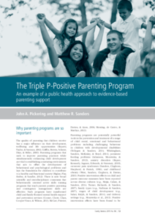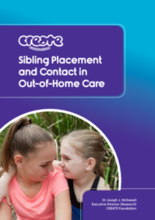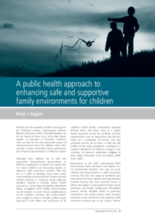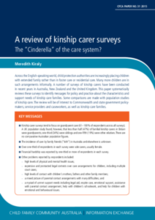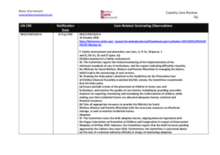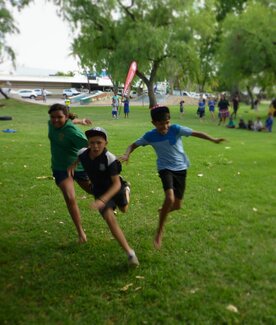

Displaying 611 - 620 of 677
This blog post from the Huffington Post describes what the author believes are contradictory actions and recent statements made by the Prime Minister of Australia in regards to adoption.
The number of children in South Australia who are living in emergency housing has risen significantly in the past year, says the article.
This video explores the "business" of orphanage tourism in Cambodia and the ways in which Australians contribute to the problem.
This article provides an overview of the Triple P Parenting Program in Australia. The article presents the evidence supporting the Triple P Program and describes how a public health approach to parenting support works.
This research report analyzes the contributing factors in children and youth’s ability to be placed in care alongside siblings, as well as how caseworkers view sibling placements in Australia’s child welfare system.
This report proposes a public health approach to promoting safe and supportive family environments for children and preventing child maltreatment in Australia.
This paper systematically reviews surveys of kinship carers in Australia, New Zealand and the United Kingdom to identify messages for policy and practice about the characteristics and support needs of kinship care families.
As part of UNICEF global initiative to End Violence against Children, UNICEF Papua New Guinea ( PNG) is currently working closely with the Department for Community Development and Religion; Department of National Planning & Monitoring; NBC radio and Kundu TV and PNG Coalition on Child Rights to undertake a yearlong END VIOLENCE AGAINST CHILDREN campaign at national and sub national level. The Campaign in Papua New Guinea aims to make violence against children VISIBLE by urging ordinary citizens, law-makers, government, the media, civil society organizations and faith based organizations throughout the country to TALK OUT and TAKE ACTION to prevent violence against children from happening and to address when it does by providing care and support for survivors. The campaign was launched on 18th June and will be conducted for a period of one year
Two Digital Media students at CQUniversity, a university in Queensland Australia, created an animated video which encourages people to register to become foster or kinship care to children in Queensland.
The Committee considered the combined second to fourth periodic reports of Fiji (CRC/C/FJI/2-4) at its 1909th and 1910th meetings (see CRC/C/SR.1909 and 1910), held on 4 and 5 September 2014, and adopted, at its 1929th meeting, held on 19 September 2014, the following concluding observations.

